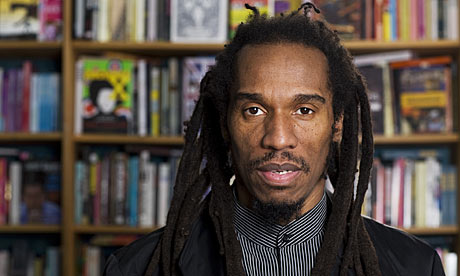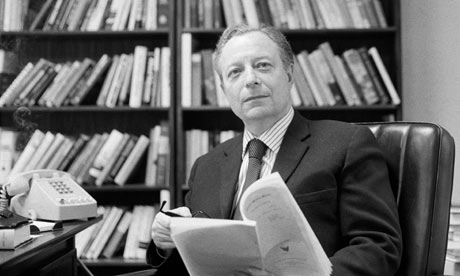
These
days, the word 'intervention' occupies one of the darkest realms of
our conciousness, particularly in relation to the Middle East.
Indeed, it's tainted legacy in both Iraq and Afghanistan has reduced
intervention either as an action destined to fail, or worse, an ugly
form of pseudo-imperialism, designed ultimately to reassert brutal
hegemonic structures of power. In our age, a much darker future can
also be seen as one repetitive of the late 1980s, whereby
intervention through the means of directly arming rebel groups, may
in turn give rise to hard line, militant Islamists. As we have been
warned- by both Arab and Western media outlets, walking down the road
of military intervention, in whatever capacity, is too dangerous to
bear the risks.
Despite such fears, I feel that the way in which we conceptualise 'intervention' is heavily misconstrued, in such a way that we immediately associate the notion with the darkest parts of recent history. Yet, on the current stage of international diplomacy, the Western world finds itself in a precarious poisition, whereby they must reconcile the rights of sovereignty whilst maintaining an ethos for universal human rights and liberties. In the case of Syria, this does not simply relate to the toppling of the Assad regime, or the removal of the ruling family. Indeed, while arming the rebels, or a direct NATO intervention may be successful in removing Assad, what will soon be found is that the lack of any coherent oppositional force to allow a transfer of governance will provide the capacity for rampant civil war. And while I certainly agree that direct military intervention, particularly on a ground level, is likely to provide further impetus for perpetuating such tensions, the philosophical basis on which the western world conducts its diplomacy should not be forsaken out of ease or fear.
The West, and in particular the United States, should therefore be proactive in forging the conditions to which Syrian society can not only resolve the violence, but also witness the political change so many have died for. In this case, the West should be more strategic in it's non-military attacks; As Michael Ignatieff wrote in the Financial Times earlier this year, a comprehensive 'quarantine' of Syria by the international community, that would reduce Assad to a perennial outsider on the global stage. Furthermore, sanctions on commerce that hit the Syrian elite, oddly aloof to the conflict, would also be substantial in weakening the foundations of Assad's regime. Finally, however, is that if intervention does take place, it must do so in a way that is devoid of political posturing; in this case, the West should not be afraid to work with the likes of Saudi Arabia, Jordan, Turkey as well as the recently established key player, Mr. Mursi of Egypt. By a proactive engagement in multilateral diplomacy within the region, the West can not only help to remove the neo-imperialist stigma of the past, but they may also find success in moulding a new model of humanitarian intervention removed of romantic politics.
Ultimately, our age now requires a different understanding of what 'interventionism' actually is. Indeed, while still maintaining the amiable goals of securing individual rights and security, the West should also consider reconstructing the means to secure these aims through more targeting, non-military approaches, as well as working with key players within the region to ensure that these principles are placed at the forefront of humanitarian ambitions. Not only would such an approach be the most likely to curb a prospective surge in civil violence once Assad's palace collapses, but it would also do well in repairing relations between the West and the Arab world.
Despite such fears, I feel that the way in which we conceptualise 'intervention' is heavily misconstrued, in such a way that we immediately associate the notion with the darkest parts of recent history. Yet, on the current stage of international diplomacy, the Western world finds itself in a precarious poisition, whereby they must reconcile the rights of sovereignty whilst maintaining an ethos for universal human rights and liberties. In the case of Syria, this does not simply relate to the toppling of the Assad regime, or the removal of the ruling family. Indeed, while arming the rebels, or a direct NATO intervention may be successful in removing Assad, what will soon be found is that the lack of any coherent oppositional force to allow a transfer of governance will provide the capacity for rampant civil war. And while I certainly agree that direct military intervention, particularly on a ground level, is likely to provide further impetus for perpetuating such tensions, the philosophical basis on which the western world conducts its diplomacy should not be forsaken out of ease or fear.
The West, and in particular the United States, should therefore be proactive in forging the conditions to which Syrian society can not only resolve the violence, but also witness the political change so many have died for. In this case, the West should be more strategic in it's non-military attacks; As Michael Ignatieff wrote in the Financial Times earlier this year, a comprehensive 'quarantine' of Syria by the international community, that would reduce Assad to a perennial outsider on the global stage. Furthermore, sanctions on commerce that hit the Syrian elite, oddly aloof to the conflict, would also be substantial in weakening the foundations of Assad's regime. Finally, however, is that if intervention does take place, it must do so in a way that is devoid of political posturing; in this case, the West should not be afraid to work with the likes of Saudi Arabia, Jordan, Turkey as well as the recently established key player, Mr. Mursi of Egypt. By a proactive engagement in multilateral diplomacy within the region, the West can not only help to remove the neo-imperialist stigma of the past, but they may also find success in moulding a new model of humanitarian intervention removed of romantic politics.
Ultimately, our age now requires a different understanding of what 'interventionism' actually is. Indeed, while still maintaining the amiable goals of securing individual rights and security, the West should also consider reconstructing the means to secure these aims through more targeting, non-military approaches, as well as working with key players within the region to ensure that these principles are placed at the forefront of humanitarian ambitions. Not only would such an approach be the most likely to curb a prospective surge in civil violence once Assad's palace collapses, but it would also do well in repairing relations between the West and the Arab world.




